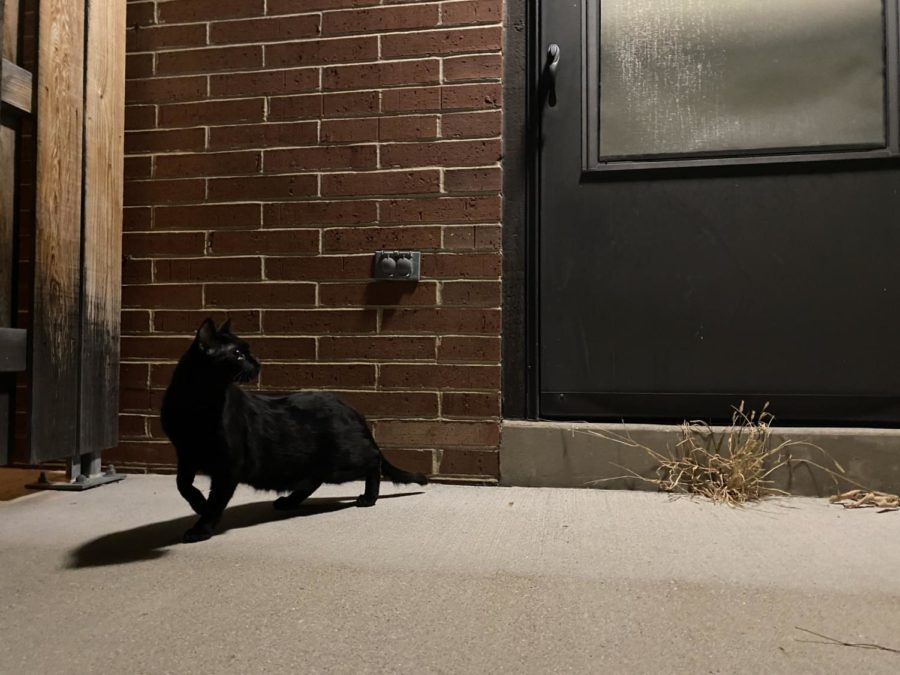The pros and cons of bringing a pet to college
Ramone Biong, an SUV resident and aspiring Iowa State student, loves to eavesdrop on the happenings of the bird community and studies philosophy in his free time.
When coming to college, students are often faced with the difficult decision of what to do with their furry, feathered and scaly companions. At Iowa State, students who bring their pets must find the right living situation and abide by the rules and guidelines set in place by the university and surrounding living spaces.
For students living on campus, bringing pets can pose many challenges. Iowa State permits the use of pets in student living but only for animals who serve a support purpose.
“ISU is committed to fostering an inclusive environment for all members of its community, including individuals with disabilities who require service or emotional support animals,” Iowa State’s policy reads.
Students are required to follow the proper procedures and guidelines before bringing their pets to campus living spaces. This includes providing emotional support animal (ESA) certification from the school and vaccinating dogs and cats for rabies.
Lourdes Soliveras-Bavosa, a a three-quarter time student at Iowa State, plans on receiving ESA certification for her support animal next year.
“Having a support animal with me helps me feel less anxious and gives me a sense of companionship when I need it most,” Soliveras-Bavosa said. “Having something there for me at all times makes me feel a lot more comfortable when I’m at college and away from my family and friends back home in New York.”
The process for attaining ESA certification for pets on campus involves a few steps. First, students must get certified by a psychiatrist or doctor. Students must then show the proper certification to the Iowa State Housing Department, which will then clear the student to bring their pet to school.
In most situations, students with ESA clearance will be asked to move into a campus dorm or apartment by themselves to prevent any complications with other students.
For students living in off-campus housing or apartments, the process can vary depending on the building’s policy regarding pets. If the apartment allows pets, students typically will have to pay an additional fee and receive permission from their other roommates. If the building does not allow pets, ESA certification is required and must be presented to the building’s housing office prior to moving in.
For Jacey Wunderlich, a freshman in pre veterinary medicine, bringing her pet snake to school has brought about a few challenges. Although her apartment complex allows for pets, snakes require lots of care and attention. The snake’s tank must be kept at a precise temperature and needs to be monitored daily.
In addition to keeping the tank at the proper temperature, the apartment must also be kept within a certain temperature range, which can sometimes lead to complications with roommates.
“Sometimes it gets a little warm in here, but I don’t really have a choice because my snake is so sensitive to temperature,” Wunderlich said.
As for feeding, Wunderlich uses whole frozen rats and must hold them in front of the snake to make sure it is properly eaten and digested.
Morgan White, a sophomore studying apparel, merchandising and design, has also faced some complications after bringing her cat to school this year.
“It’s been tough trying to balance my classes and schoolwork with training my cat,” White said. “Going through all the usual kitty training is already a lot, but having to do it while at school gets to be a lot sometimes.”
Whether the pet is a support animal or just simply a companion, students bringing their pets to school must be ready for the work involved while also following all regulations set in place by the school.
For the full regulations and guidelines surrounding pets on-campus, students can view Iowa State’s animals on campus policy.
Your donation will support the student journalists of the Iowa State Daily. Your contribution will allow us to purchase equipment, send our student journalists to conferences and off-set their cost of living so they can continue to do best-in-the-nation work at the Iowa State Daily.











